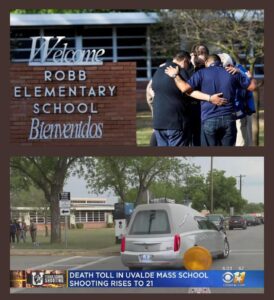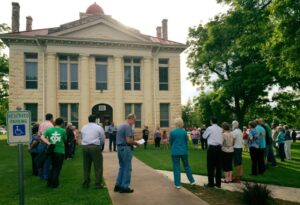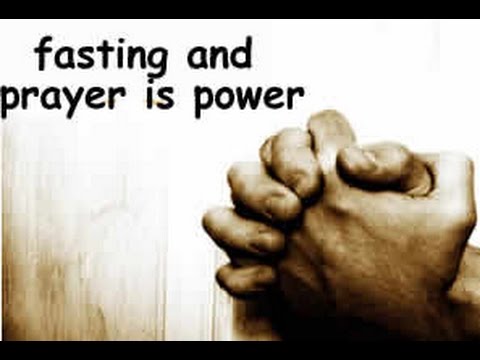Beyond Thoughts and Prayers
“Boycott the N.R.A.! “Ban assault rifles!” “Improve background checks!” “Raise the purchasing age to 21!”
Those are some of the proposed solutions from one side of the gun violence argument in response to another tragic shooting at an elementary school in Uvalde, Texas.

The other side? “Arm the teachers!” “Provide better education and training for gun owners!”
Maybe repealing the 2nd Amendment altogether is the answer?
Not one of those proposals will work.
I’d be remiss in my pastoral writing not to address the reasons for such acts of senseless violence.
We can certainly anticipate more controversy of what could have been done, what should have been done. And you can bet that those who offer their thoughts and prayers will be shamed once again, too.
Then-Presidential candidate Kamala Harris after a mass shooting several years ago Tweeted, “Thoughts and prayers are not enough. We need action.”
Rep. Ilhan Omar (D-Minn.) said: “No more thoughts and prayers.”
When Senator Ted Cruz Tweeted “Heidi & I are fervently lifting up in prayer the children and families in the horrific shooting in Uvalde,” Alexandria Ocasio-Cortez wrote in response: “You can do more than pray. Faith without works is dead.”

CNN reported that the phrase “thoughts and prayers” had reached “semantic satiation, the phenomenon in which a word or phrase is repeated so often it loses its meaning.”




28 Days Later
The preacher was shaking hands with his congregants and saying goodbye after the Easter service. He grabbed one man by the hand and pulled him aside. “You need to join the Army of the Lord!” the preacher exhorted.
The man replied, “I’m already in the Army of the Lord, Pastor.”
Curious, the preacher asked, “How come I don’t see you except at Christmas and Easter?”
The man looked around cautiously and whispered back, “I’m in the Secret Service.”
We had record attendance at our Resurrection Day service this year, but on May 15, 28 days later, four Sundays after, everything was back to normal.
It’s tough in this post-Christian era to get people to see the value of coming to church after the two big holidays of Easter and Christmas. But a Christian without a church is like a student who won’t go to school, a soldier without an army, a citizen who won’t vote, a sailor without a ship, a drummer without a band, a ballplayer without a team or a bee without a hive.
A pastor asked a man why he didn’t go to church, and he replied, “I don’t go to church because every time I do they throw something at me.”
“What do you mean?” the preacher inquired.”
“Well,” the man explained, “When I was a baby, my parents took me to church, and the minister threw water on me. After I got married, they threw rice at me.”
The pastor answered the man impatiently,
Read More